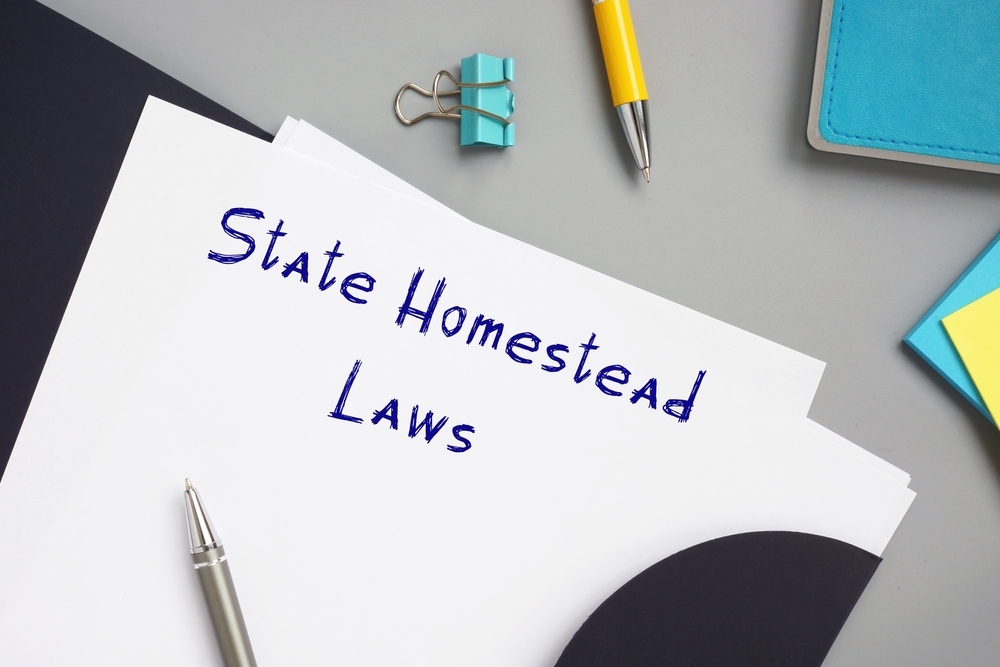Grandparents often are particularly generous to grandchildren as they see their family’s legacy continuing to…

Understanding Florida’s Homestead Laws: What Every Homeowner Should Know
Florida’s homestead laws are among the strongest in the country, offering powerful protections for your primary residence. These laws can shield your home from most creditors and ensure it passes to your family under specific rules. However, they also create strict limitations on how your homestead can be transferred after death—limitations that can cause confusion if not properly addressed in your estate plan.
Here’s what every Florida homeowner needs to know about homestead protections and how they work.
What Is “Homestead” in Florida?
In Florida, homestead refers to your primary residence. Under Article X, Section 4 of the Florida Constitution, this property receives unique protections:
- It is exempt from most creditors’ claims,
- It is generally handled separately from probate assets after death, and
- It is subject to specific restrictions on how it can be transferred when you pass away.
These benefits are automatic if you meet Florida’s residency and ownership requirements, but they also impose limits on what you can do with your property in your will or trust.
How Homestead Passes at Death
The way homestead passes depends on who survives you and how the property is titled:
If You Leave a Surviving Spouse or Minor Child (Protected Homestead):
Florida law restricts how you can leave your homestead if you are survived by a spouse or minor child:
- If you leave a spouse and one or more minor children, your spouse receives a life estate in the property (or may elect a ½ ownership interest), and your descendants inherit the remainder.
- If you leave only a spouse, they inherit the property outright unless they have previously waived their spousal rights.
- If you leave minor children, you cannot transfer the homestead by will or trust at all—it passes automatically to your heirs under Florida law.
Protected homestead is shielded from probate, administrative expenses, and most creditors’ claims, meaning it transfers outside of the probate process.
If You Leave No Spouse or Minor Child (Freely Devisable Homestead):
If there is no surviving spouse or minor child:
- You may leave your homestead to anyone you choose by will or trust.
- If you do not have a will, it passes to your heirs according to Florida’s intestacy statutes (F.S. 732.103).
Special Considerations for Jointly Owned Homes
If you own your homestead jointly with rights of survivorship or as tenants by the entirety (between spouses), your share passes automatically to the surviving owner. This transfer happens outside of probate and is free from the decedent’s creditors.
Waiving Spousal Homestead Rights
A spouse may waive homestead rights through a valid prenuptial or postnuptial agreement (F.S. 732.702). When waived, the spouse is treated as if they predeceased, allowing you more flexibility in devising the property.
Common Myths About Florida Homestead
Florida’s homestead laws are often misunderstood. Here are a few common myths—and the truth behind them:
Myth 1: “I don’t need a will because my homestead is automatically protected.”
Reality: While homestead protections keep your home safe from creditors, they don’t replace a will or trust. Without proper planning, your home may pass in ways you didn’t intend, potentially creating disputes among heirs.
Myth 2: “I can leave my homestead to anyone I want.”
Reality: If you have a surviving spouse or minor child, you can’t freely devise your homestead. State law determines how it passes, regardless of what your will says.
Myth 3: “Putting my home in a trust avoids homestead rules.”
Reality: Even if your homestead is titled in a revocable living trust, Florida’s homestead restrictions still apply. You cannot use a trust to bypass a spouse’s or minor child’s rights.
Myth 4: “Homestead only matters during probate.”
Reality: Homestead protections also apply during your lifetime. They limit forced sales to satisfy most creditor claims and require your spouse to sign the deed when selling unless they have waived their rights.
Frequently Asked Questions About Florida Homestead
- What happens if my spouse disclaims their homestead interest?
If your surviving spouse disclaims their life estate or inheritance rights, the homestead passes as if they predeceased you. In most cases, it will then go directly to your descendants (children or grandchildren).
- Can homestead be sold during probate?
Yes, but only under very limited circumstances and with court approval. Protected homestead is exempt from most creditor claims and is generally not sold to pay debts.
- Does my homestead lose protection if it’s placed in a revocable living trust?
No. Florida law recognizes homestead status even if the property is titled in your revocable trust, provided you live there and otherwise qualify. However, the constitutional restrictions on devise still apply.
- Can I own more than one homestead property in Florida?
No. You can only claim one homestead at a time. It must be your primary and permanent residence.
Why Homestead Planning Is So Important
Florida’s homestead laws can lead to unintended consequences, including:
- Family disputes between surviving spouses and children over life estates,
- Unintended disinheritance of children if the property passes entirely to a surviving spouse, and
- Missed creditor protections if homestead is improperly handled in probate.
Proper planning—often using tools like revocable living trusts or spousal waivers—can prevent these issues, protect your family, and ensure your wishes are carried out.
The Bottom Line
Florida’s homestead laws provide significant benefits, but they also impose strict rules on inheritance. Understanding these laws is crucial to avoid surprises and to create an estate plan that protects both your home and your loved ones.
If you own a home in Florida, consult with an experienced estate planning attorney to make sure your homestead is properly addressed in your plan.



